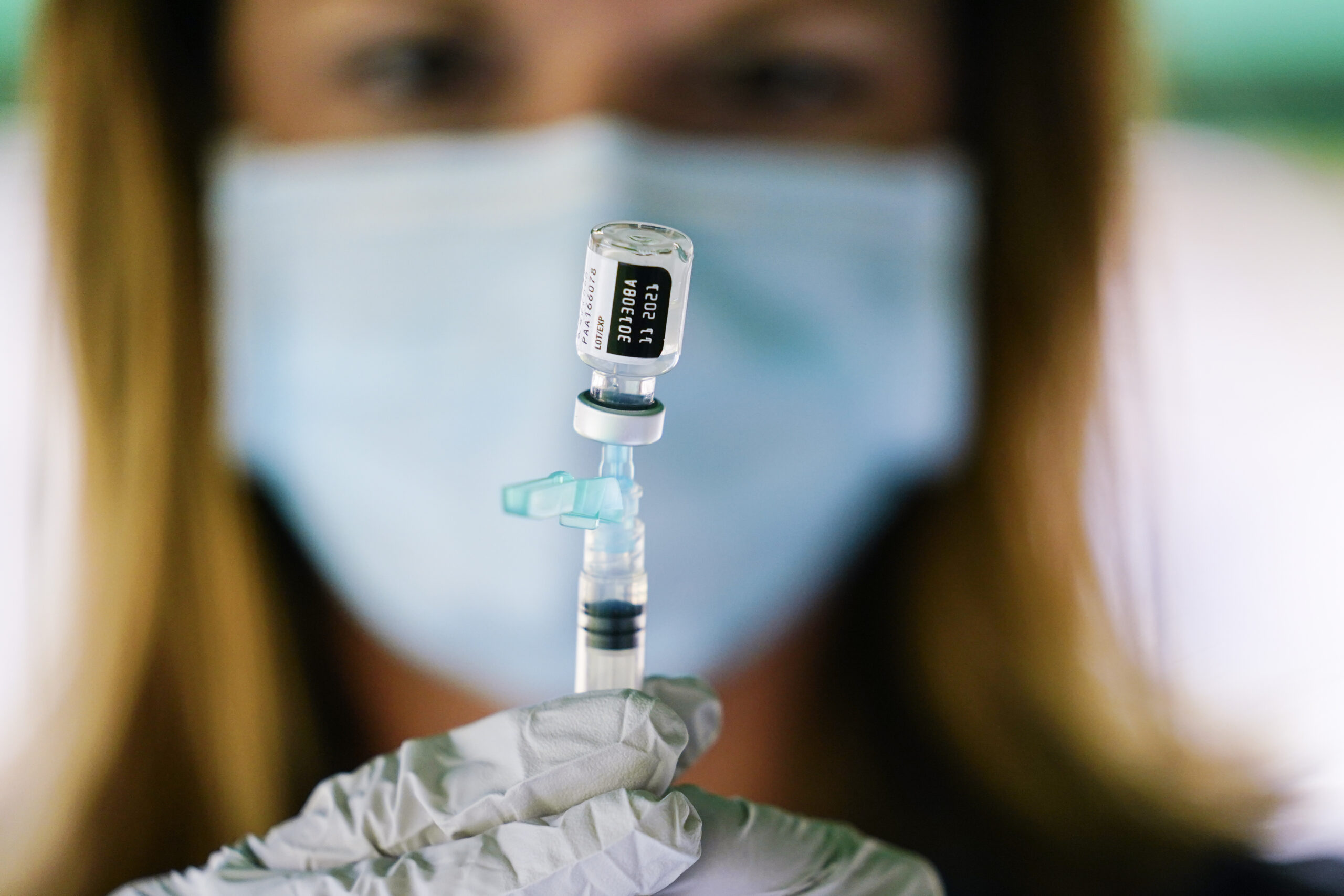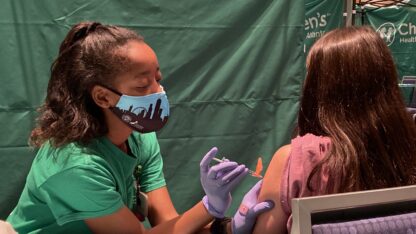The Associated Press
|
AP
September 15th, 2021
The number of COVID-19 cases in Georgia remains high despite a recent decline and still creates a significant risk the disease could spread through communities, state epidemiologist Cherie Drenzek said Tuesday.
Drenzek updated the state Board of Public Health on the spike in COVID cases since the end of June. The increase is being fueled by the delta variant of the virus among people who are unvaccinated.
Since the beginning of September, the seven-day average of new cases has fallen. But Drenzek warned the state is coming down from steep peaks, and its hospitals and schools are still facing great strain. The “risk of transmission” through communities remains high, she said.
“We’re very much at peak levels even though we’re starting to go down,” she said.
The state recently set a record for the number of patients hospitalized with COVID-19. And Drenzek said the recent surge has affected school-aged children much more than previous waves. Children up to the age of 17 now account for more than a quarter of all cases.
She urged continued adherence to precautions such as maintaining social distance, wearing masks and quarantining when sick or exposed. Increasing the state’s vaccination rate also remains vital, she said.
Only 45 percent the state’s population is fully vaccinated, well below the national average.
State health officials want to make the COVID-19 vaccine a normal part of visits to primary care doctors, and are trying to understand barriers to getting more of them to administer inoculations, said Chris Rustin, a senior advisor to Department of Public Health Commissioner Kathleen Toomey. Rustin also addressed the board.
Board Chair James Curran urged the health department to avoid the “partisan politics of vaccine mandates” and continue its effort to stress the importance of getting vaccinated.
Toomey told the board that health workers have been forced to close several vaccination sites because they’ve been booed and jeered.
“We’re not only not valued. We’re ridiculed. We’re lambasted in social media,” she said. “This is absolutely unprecedented in my public health experience.”
Her voice choking with emotion, she thanked public health staff and said the state and country need to do a better job of supporting them through an exhausting period that has left many burnt out.
“We really have to think how can we continue to support our staff even as we continue to fight a pandemic,” she said.









